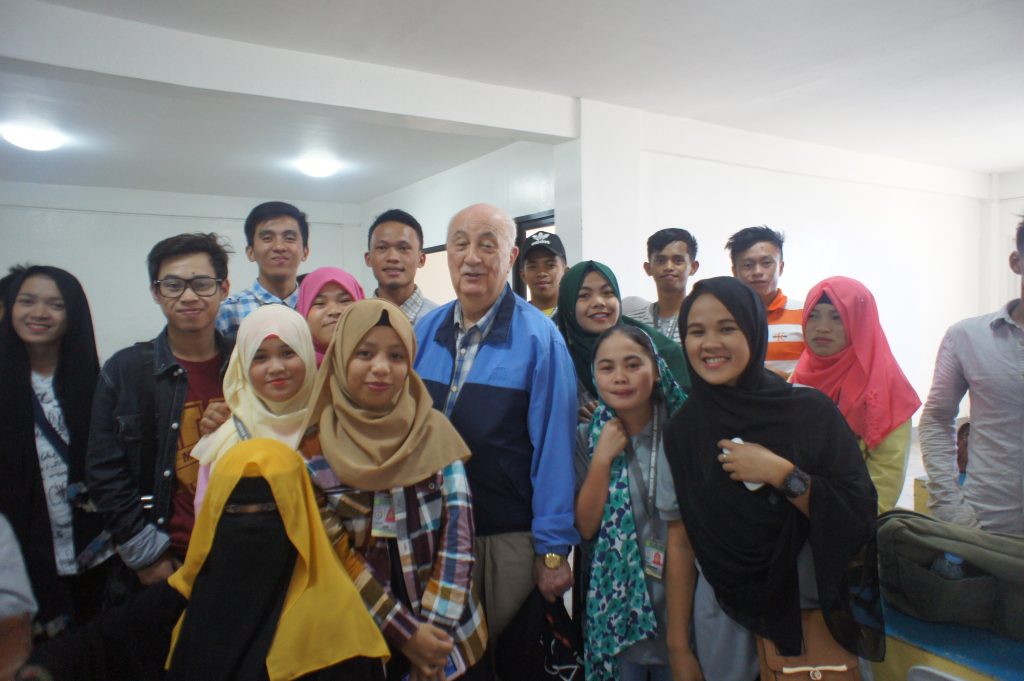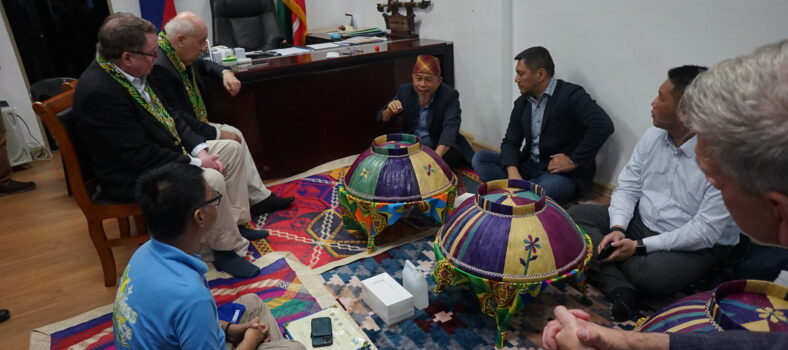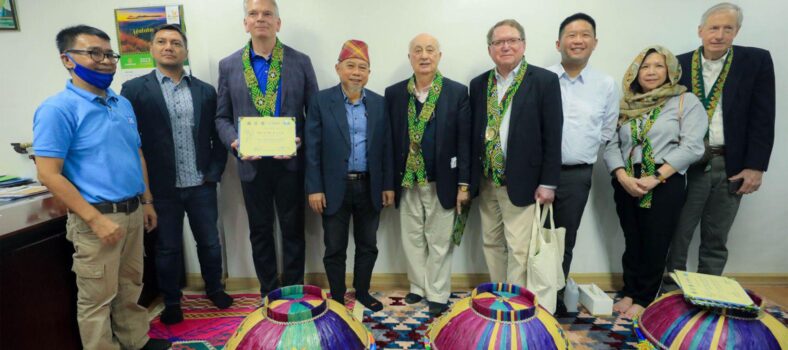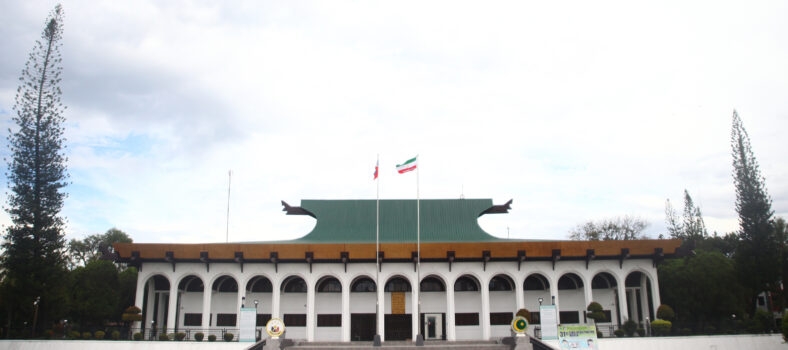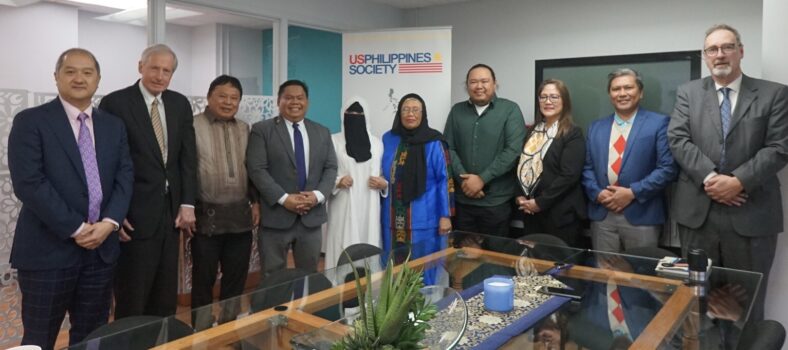Weekly Issues: COVID-19 Response and Development Prospects in the Bangsamoro Region
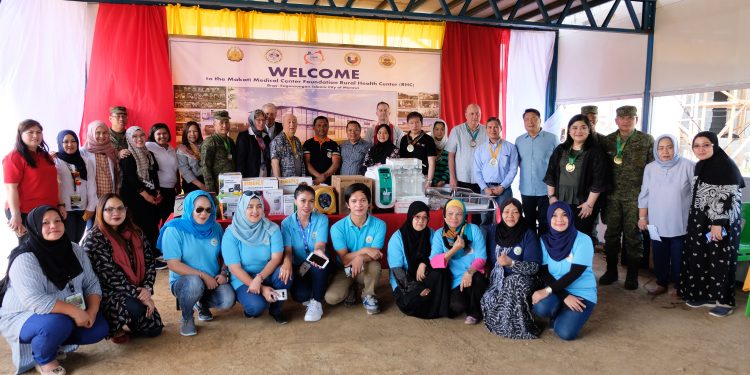
May 27, 2020
Featured Contributor

Member, Bangsamoro Transition Authority
Bangsamoro Autonomous Region in Muslim Mindanao (BARMM)
Question 1. How has the Coronavirus impacted the BARMM, and how has the autonomous government responded?
The Bangsamoro Autonomous Region for Muslim Mindanao (BARMM) has been greatly affected along with the rest of the Philippines and the world. Since our resources in the Philippines are limited, especially in terms of medical and economic resources, BARMM has been affected even more noticeably as a new autonomous structure still trying to establish its government.
In April 2020, the Inter-Agency Task Force on Emerging Infectious Diseases (IATF-IED) of the Philippine national government appointed BARMM Chief Minister Hon. Murad Ahod B. Ebrahim to lead the Bangsamoro Regional IAFT-IED.
According to Chief Minister Ebrahim, the BARMM government has already spent over $39 million for its COVID-19 response. Funds are being spent to support our front-liners, hospitals, and COVID-19 patients; health facilities and laboratory upgrades; massive relief operations; support to our local government units (LGUs); COVID-19 Strategy Commission; and Social Amelioration Program and interventions. According to the latest update, approximately 86% of the aid earmarked has been distributed, which includes cash and food items, to our people under the social amelioration program of the BARMM.
In fact, BARMM has issued COVID-19 guidelines for its people to follow in order to mitigate the spread of the virus in the region and has been strengthening its government coordination by establishing key task forces or groups. All Local Chief Executives (LCEs) were also directed to organize their respective Local Price Coordinating Council (LPCC) to monitor supply on basic commodities and enforce a price freeze, if needed, to prevent profiteering and hoarding by business owners and wealthy individuals.
BARMM has also been strengthening its LGUs with funds for their COVID-19 response initiatives. It has also been maximizing government resources and prioritizing health measures, such as the use of a Navy vessel and crew to deliver relief goods to the island provinces, courtesy of Armed Forces’ Western Mindanao Command; and the signing of a Memorandum of Agreement with the Cotabato Regional and Medical Center (CRMC) for the BARMM to fund approximately $285,000 for the procurement of medical and laboratory supplies for COVID-19 diagnostic testing. The BARMM has also been addressing the shortage of hospital facilities. A 100-bed COVID-19 isolation facility is currently under construction in Cotabato Sanitarium Hospital.
While making sure that COVID-19 patients receive necessary care and that their hospital expenses are covered through the Ayudang Medikal Mula sa Bangsamoro (AMBAG) Program, BARMM also recognizes the need to respond to the mental well-being of the Bangsamoro people, providing free psycho-social support and psychological first aid wherein the social workers can be reached online through Facebook, Skype, Viber, and WhatsApp.
Aside from ensuring food security by providing relief assistance, especially to vulnerable sectors of the society, BARMM is distributing healthy and nutritious relief goods for residents while supporting livelihood and the sustainability of local farmers through purchases of their agricultural products which some LGUs distribute as part of the relief packs for their residents. BARMM has also made sure there is a continuous provision of farm input to different municipalities in order to secure the food supply during the pandemic.
In addition, BARMM has been giving cash grants for “individuals at risk,” including identified workers in the private sector, particularly “formal” and “informal” sector workers who have been displaced by the quarantine. Citizen participation to address the needs of vulnerable sectors has also taken place in the BARMM, including private donations of relief goods for needy families.
Utilizing Innovation and Technology to Respond to the Crisis and Maximized use of innovative tools for more efficient service delivery, such as maps with satellite imagery, can be used to plot areas with emerging cases of COVID-19. This would facilitate a faster and more effective response by LGUs to areas and communities where there are virus infections and local vulnerabilities, as well as violent tensions and pressures. The region would benefit by employing various platforms, such as U-Report, an online platform developed by UNICEF, to disseminate information about COVID-19, and SCOPE, developed in partnership with World Food Programme, for the cash payouts, beneficiary registration, beneficiary information management, and distribution reporting for Social Amelioration Program.
The bottom line reality at this point, according to a top regional official, is that the BARMM remains low on food supplies and medical equipment amid the Coronavirus of 2019 (COVID-19) pandemic.
Question 2. In general terms, how would you describe progress toward implementing autonomy arrangements under the BARMM?
Setting up a government is no easy task as it poses a number of challenges. In fact, ten years is not considered enough by many to completely set up a government, let alone three years for a parliamentary government.
Although serious obstacles have been put forth by the COVID-19 pandemic, the Bangsamoro Transition Authority (BTA) Parliament of the BARMM is doing its best to fulfill its duties. The Members of the BTA Parliament have not stopped working and are still in the process of legislating priority codes and other important provisions of law, as mandated under the Bangsamoro Organic Law (BOL). Ad Hoc committees have been organized to draft and work on the major codes.
According to Hon. Mohd Asnin K. Pendatun, Cabinet Secretary and Spokesperson for the BARMM Inter-agency Task Force on Emerging Infectious Diseases (BIATF-EID), the different flagship programs of the Members of the BTA Parliament and BARMM governmental agencies and offices have also been affected, resulting in delay in the delivery of services.
Question 3. How would you characterize the current peace and order situation in the South, how the BARMM leadership is responding to challenges, including from splinter groups?
Unfortunately, the threat of terrorism has not been totally eliminated but has been greatly mitigated by the facilitation of BARMM leadership in the surrender of many members of the Abu Sayaf and the Bangsamoro Islamic Freedom Fighters, including their firearms, to the government through the program to reintegrate said members into mainstream society. ·
The BARMM has also assigned a Member of Parliament, Datu Antao Midtimbang, as a mediator to one of the RIDOs in Maguindanao. As for Lanao del Sur, the Duterte administration has appointed some 20 Maranao leaders to hold positions in the parliament, as well as to the Cabinet and other key agencies and offices in the BARMM government. At this point, coordination between the national government and the Bangsamoro government and the LGUs have yet to yield results at the grassroots level.
The RIDO of Moro Islamic Liberation Front (MILF) 105 Base Command and the MILF 118 Base command are involved in a power play. The local dynamics have apparently arisen out of issues on control over land and a family feud.
Another cause of lingering tensions stems from differences between the MILF which now has a leading position within the BARMM, and the MNLF, which widely is perceived to have misused its authority in implementing autonomy following the 1996 Peace Agreement with the national government.
Definition:
RIDO, or feuding between families and clans, is characterized by sporadic outbursts of retaliatory violence between families and kinship groups, as well as between communities.
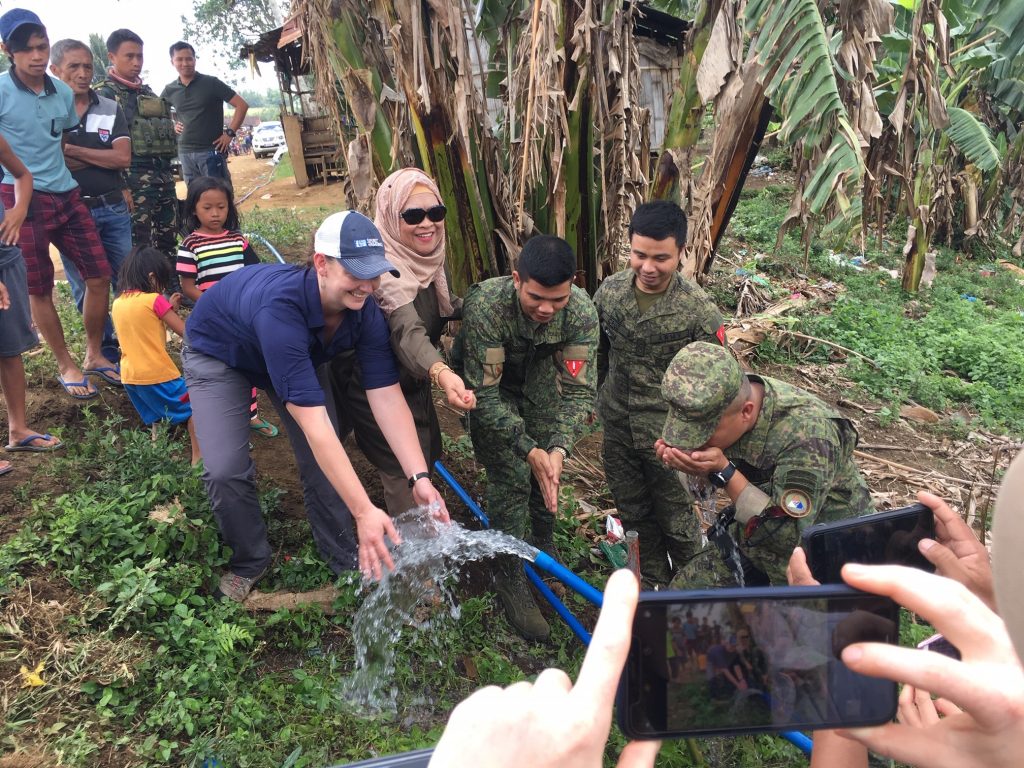
Question 4. What are the prospects for encouraging greater economic development, and which sectors hold promise for investors?
BARMM has an abundance of natural resources that we can tap. However, we are not well-equipped to utilize them as a result of a lack of proper funds and technology for development and extraction.
BARMM was able to attract investments worth $82 million in 2019. According to the records from the Regional Board of Investments (RBOI), this is an increase of approximately 40 percent from the previous year under the Autonomous Region in Muslim Mindanao (ARMM), which garnered $50 million in investments.
BARMM has also developed economic measures focusing on the following:
- Sustainable Agriculture
- Legislation for the creation of the Ministry of Fisheries in the BARMM and resolution to support the creation of the Department of Fisheries.
- Al Amanah Islamic Investment Bank of The Philippines as a window for Islamic Banking and Finance.
- Strong cooperatives and access to capitalization through loans for equipment and machinery to increase productivity.
- Legislation for Halal in the BARMM
- Joint venture and corporative system of partnership in creating industries for the Bangsamoro
- Compliance of the LGU for their Comprehensive Land Used Plan and updated Barangay Development and Disaster Resilient Plan for a data-driven intervention.
For the Bangsamoro waters, there is a need to regulate and legalize the in-and-out of international vessels in the Island provinces of Basilan, Sulu, and Tawi-Tawi for taxation and opportunity to open shipping industry, import, and export, barter trading of the Bangsamoro with Malaysia, Indonesia, and other neighboring countries.
Although the current economic situation is quite difficult as the COVID-19 pandemic continues to stifle activity within the BARMM and beyond, the BARMM’s outlook remains positive. The BARMM is strengthening government coordination for the economy of the region by establishing key task forces, including the Joint Action Team COVID-19 with the Ministry of Trade, Investment and Tourism, Ministry of Labor and Employment, as well as for its security sector.
On balance, however, it is unrealistic to expect significant progress toward greater economic development at this time during the pandemic, and it is important that BARMM leaders do not mislead potential investors now as well as constituents until conditions improve. ###
About the Author
Mussolini Sinsuat Lidasan is a Member of the Bangsamoro Transition Authority, Bangsamoro Autonomous Region in Muslim Mindanao (BARMM). He is founder and Executive Director of the Al Qalam Institute of Islamic Identities and Dialogue In Southeast Asia based at Ateneo de Davao University. He has over twenty years of experience as a facilitator in intra-faith and interfaith dialogue, non-violence training and conflict analysis and management. He worked as a United Nations volunteer – Community Development Specialist, 1998-2003. His publications include opinion and feature stories for Sunstar Davao and MindaNews.
He studied law at Ateneo de Davao University (2003 – 2010). He is a candidate for Masters in Anthropology (Islam and Religion) at the Ateneo de Davao University. He completed the International Visitor Leadership Program of the US State Department on Community Service and Civic Engagement among University Students, a program focusing on Countering Violent Extremism in 2016.
